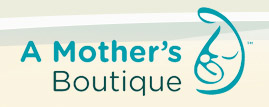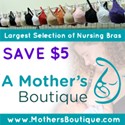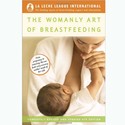The very first time I hooked up my breast pump to pump for my first son, a relative looked at my half-ounce bounty and said, “That’s not very much. Are you sure you have enough milk??”
This is just one example of a booby-trap that can derail the nursing experience for breastfeeding mothers, particularly first-time moms with no other breastfeeding experience or role models to draw upon. I felt crushed by that comment. Utterly discouraged. How was I, crazed and exhausted, to know that a half ounce was typical to pump for a newborn? That a half ounce was what my body made in excess of what my son needed, since he hadn’t missed any feedings.
And it was my breasts’ very first experience with the electric pump, something quite different from the magical and biological sucking/patting/cuddly newborn baby I’d grown accustomed to letting down for. Oof!
Pumping only went downhill from there for me, the first time.
I was determined to have a better experience the second time and I’d like to share what made my subsequent pumping experience more successful.
1. A Network of Nursing Role Models. I started attending La Leche League meetings when my first babe was 5 weeks old, and those meetings put me in touch with a host of other mothers who breastfeed. They, in turn, gave me the dish on all the cool places to hang out around my city with my nursing babe in tow. Sure, facebook support is helpful and reassuring at 3 in the morning, but there is nothing like spilling your guts to a room full of other new, nursing moms and having your experience totally validated. My! The weight that is lifted at one of these gatherings. Is there a New Mom Connections group near you? Get there, post haste!
2. A Breastfeeding & Working or Pumping Class. I took a class during my second pregnancy, taught by an IBCLC. I learned a great many things there, like paced bottle feeding and facts about breastmilk quantities. I learned things to say to my care providers, who insisted my first son was not getting enough food because I brought in fewer ounces of milk than his formula-fed peers. Breastfed babies drink fewer ounces of milk than formula-fed babies. A class will teach you these things.
There is much to learn about milk production and expression. It takes weeks to get the hang of nursing a baby (or it did for me, anyway) and it takes just as long to learn about pumping, about your body’s patterns and your baby’s preferences. There is so much to learn about lactation, and a class is a vital way to gain this information.
3. Selective Sharing. I learned not to vent to people I knew were not supportive of or educated in breastfeeding issues. If I’d had a rough day and called an unsupportive relative to unload, she’d say, “You should give the baby some formula.” If I called someone from my network of nursing role models and spilled my guts, she’d say, “That is hard! It’s also totally normal. Do you want me to help you think of some solutions or did you just need to vent?”
4. What Seems Crazy is Normal. So much about pumping milk is bizarre. I mean, I sat in a chair and hooked my body up to a pump! Like a farm animal. That’s crazy, to me. But also totally normal and a way to feed my baby my milk in my absence. It is also crazy that my left boob is 2 cups sizes larger than my right, that one breast will churn out twice as much milk as the other, that I keep nipple cream in my purse, and that I crowd sourced a place to express my milk (drawing upon, again, my network of nursing moms). Chances are, with breastfeeding, even if something seems utterly bizarre, it’s normal. Always call an IBCLC to verify if you have concerns, though.
What did you do when you were pumping that really improved your experience? Leave us a comment to share your most helpful tips.










